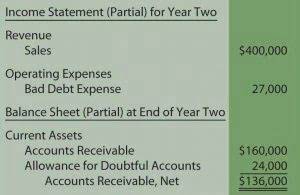Content

James Woodruff has been a management consultant to more than 1,000 small businesses. As a senior management consultant and owner, he used his technical expertise to conduct an analysis of a company’s operational, financial and business management issues. James has been writing business and finance related topics for work.chron, bizfluent.com, smallbusiness.chron.com and e-commerce websites since 2007. He graduated from Georgia Tech with a Bachelor of Mechanical Engineering and received an MBA from Columbia University.
Listed entities are required to file them with stock exchanges, as well as for direct and indirect tax filing purposes. Needless to say, accounting plays a critical role in all these scenarios. Business trends and projections are based on historical financial data to keep your operations profitable.
How do small businesses use accounting?
Proper accounting allows a company’s management to better understand the financials of its business. This is so they can strategically plan its future expenditures in order to maximize profit. Business accounting is integral to the operation of small accounting definition and medium-sized businesses. To better manage finances, business owners can use business accounting principles to keep track of inventory, profit and loss, and cash flow, so they catch problems early and maintain profitability or improve when needed.
Business accountants are responsible for analyzing the business’s financial health, and informing businesses of their compliance obligations. It’s hard to run a company successfully if you don’t know where your money is going or coming from, and that’s one of the key functions of accounting. Management accounting keeps you up to date on your company’s performance, helps you identify places where you’re underperforming, and usually provides the information you need to correct any problems. It’s also the information you need to make long-term plans or to launch new projects.
What Are Auditing and Accounting?
There are a few business accounting basics you should understand to ensure your business operations run smoothly. While you may be an expert at sales or marketing, you should never undermine the importance of basic accounting. Without a clear financial picture, it can be nearly impossible to move your business forward. Below, you’ll find important accounting terms and principles that can help you get started. For a more in-depth understanding, take a look at our accounting terms and accounting principles articles. Accounting helps you gauge where your small business stands financially, what it can afford at any given time, and where its money is coming from and going.
- Businesses are required to furnish financial information to a number of government agencies.
- If you prefer a completely hands-off approach to bookkeeping and accounting, Bench might be right for you.
- You can outsource your accounting work to outside professionals who specialize in bookkeeping and tax preparation.
- This is the practice of recording and reporting financial transactions and cash flows.
- Credentials are extremely important to accountants and financial analysts.
These reports for external use are the profit and loss statement, balance sheet and cash flow statements. Unlike internal management accounting reports, financial statements prepared for outside users are compiled using Generally Accepted Accounting Principles. Because it communicates so much of the information that owners, managers, and investors need to evaluate a company’s financial performance.
Cloud accounting
Business transactions—any activity or event that involves your business’s money—need to be put into your company’s general ledger. Managerial accounting analyzes the information gathered from financial accounting. The reports serve to assist the management team in making strategic and tactical business decisions. Accounting is important as it keeps a systematic record of the organization’s financial information. Up-to-date records help users compare current financial information to historical data. With full, consistent, and accurate records, it enables users to assess the performance of a company over a period of time.

They also need hands-on experience through internships and other professional opportunities. Accurate accounting of manufacturing costs for each product is essential to the development of a sales plan and a projected product mix. The company’s accountants have determined that manufacturing costs for this product include $2.57 in materials, $8.38 in labor and applied production overhead of $3.16 per unit. The selling price is $23.51, giving the company a gross profit margin of 40 percent. Unlike accounting’s reliance on transactional data, finance looks at how effectively an organization generates and uses cash through the use of several measurements.
The objectives and characteristics of financial reporting
Internal users may include the people that plan, organize, and run the organization. Business decisions may range from deciding to pursue geographical expansion to improving operational efficiency. The Accountant/Person in charge for the accounts department must know the basic accounting principles, Accounting policies and procedure, IFRS and the local laws about that industry / Company. For example, in the case of the construction industry, the owner may need information about a project.
To know about the company’s performance, we must record all the transactions. We can also opt for any accounting software based on our requirements which are readily available in the market nowadays. For example, if you are a trading company, it is better to buy the software which is integrated with the inventory. Accounting is the process of keeping track of your business’s financial transactions.
Now, read this section on the difference between managerial and financial accounting. In recent years, there has been a growing demand on the part of stakeholders for information concerning the social impacts of corporate decision making. Increasingly, companies are including additional information about environmental impacts and risks, employees, community involvement, philanthropic activities, and consumer safety. Much of the reporting of such information is voluntary, especially in the United States.

Finally, structure payroll in billing cycles that flow well with the company’s income stream. This means timing the frequency and amount of payouts in congruence with other business expenses and payouts. Accounting professionals like CPAs or tax advisors can also provide you with knowledge https://www.bookstime.com/articles/accounting-for-research-and-development and insight that are simply inaccessible to non-accountants. These experts can offer guidance on tax deductions you didn’t know you qualified for, tax rules you didn’t know you were breaking, and best practices picked up while working for other companies in your industry.
What is business accounting?
Harvard Business School Online’s Business Insights Blog provides the career insights you need to achieve your goals and gain confidence in your business skills. Saylor Academy®, Saylor.org®, and Harnessing Technology to Make Education Free® are trade names of the Constitution Foundation, a 501(c)(3) organization through which our educational activities are conducted. At PDR CPAs, we leverage our 45+ years of industry expertise to help you keep your finances strong and your business moving forward. Items you can actually touch, such as cash, inventory, equipment, land or a building.
